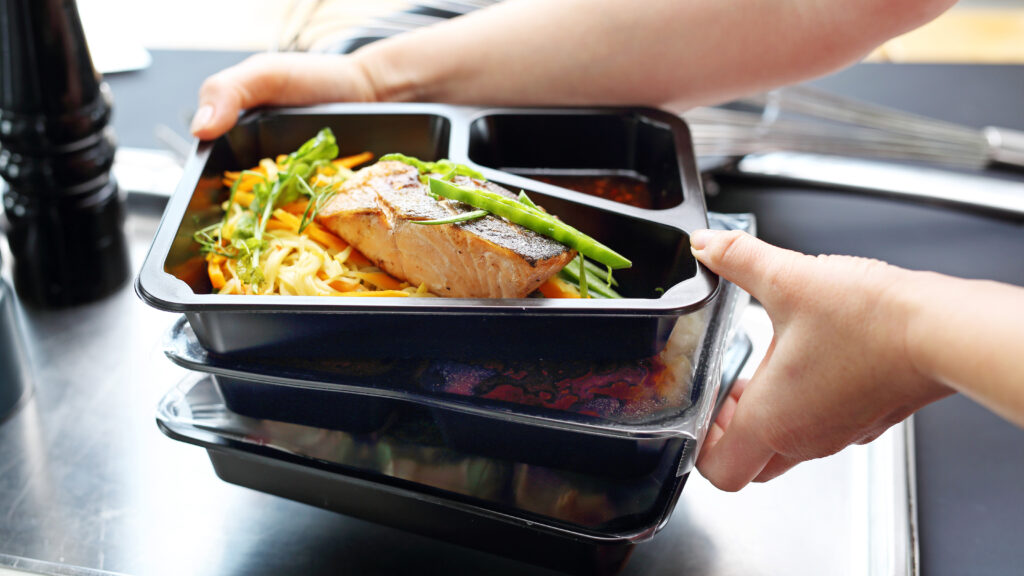WASHINGTON – Some twelve percent of traditional Medicare beneficiaries have heart failure. Roughly a quarter have diabetes. There’s early evidence suggesting that both conditions — and a slew of others — could be better managed with pre-made healthy meals.
So why doesn’t Medicare try out delivering food to sick seniors?
advertisement
The experiment would fit with the Biden administration’s larger push toward integrating so-called “food is medicine” interventions into traditional health care. Skeptics of the idea note that there’s still very little clinical research integrating food into medicine. But proponents say the early evidence shows the idea could both improve health care outcomes and save the healthcare system money overall. One study estimated that providing healthy prepared meals — commonly known as medically-tailored meals — in Medicare could save the program $3.4 billion in just one year.
“The beauty of medically-tailored meals is that they’re actually cost saving,” said Alissa Wassung, the executive director of the Food Is Medicine Coalition. “As a benefit, it is valuable not only to the humans who receive it, but also to our health care system.”
In Washington right now, the debate is less about whether to test the idea — and more about how to do it. At least one outspoken Democrat in Congress believes the federal Medicare program can give it a go now, without the help of Congress — a rare flexibility for policy agencies. Medicare has been hesitant.
advertisement
“We need to get creative and we need to find a way to make this happen. And it needs to happen now,” said Rep. Jim McGovern (D-Mass.) at a recent summit on the issue. In an interview with STAT, he was audibly frustrated.
“I just want them to get this goddamn thing done,” said McGovern. “Do whatever you gotta do. Move heaven and earth, I don’t care what it is. But just get it done.”
Others, however, caution that even if Medicare can do it, legislation from Congress empowering the program would be better.
“A congressionally directed [pilot] is the best, fastest route,” said Kim Corbin, a former McGovern staffer who now lobbies on food is medicine. “When you have a motivated Congress … and they set aside funding … you really can change things.” She said she also supports Medicare piloting the idea on its own.
A spokesperson for Medicare declined to answer STAT’s questions on whether it believes it has the authority to test the idea through its so-called Innovation Center. Instead, he said in a statement Medicare “is actively working with officials across [the government] and with stakeholders to address food security and nutrition, including efforts to integrate nutrition and health, into Innovation Center models.”
The debate underscores how hard it is to integrate food into traditional health care. While medically-tailored meals have been successfully tested in small clinical trials and are even being piloted by a few states’ Medicaid programs, which provide health care for poor Americans, it has never been integrated into a federal program as big as Medicare.
And while Medicare has an office that exists solely for the purpose of testing changes to the program, its experiments have focused primarily on more traditional tweaks, like changing how doctors are paid. Several Medicare experts emphasized to STAT that it would be difficult for Medicare to pilot the idea through that office, even if it does technically have the legal power to do so.
Medicare officials may have also already run out of time to test the idea before the November presidential election. It often takes several months, if not years, to launch an Innovation Center pilot. A plan to change how Medicaid pays for high-tech cell therapies, for example, was announced in 2023 and isn’t expected to begin testing until 2025.
But getting legislation signed into law isn’t a small lift either. McGovern and a bipartisan group of lawmakers have introduced a bill each year since 2020 to do just that, though it has never received a committee hearing, let alone formal consideration or a vote.
Several sources who have had direct conversations with Medicare about the idea had different retellings of the agency’s interest in piloting the program.
McGovern’s chief of staff told STAT that their office met with Medicare on two occasions and that they were told the idea did not fit into their model because there was not enough clinical research testing it.
But other experts insisted that the government is still considering the idea.
“They are looking for the best approach to do it,” said Dariush Mozaffarian, the director of the Food is Medicine Institute at Tufts University, who has also had conversations with Medicare officials.
Mozaffarian added that he believes Medicare is planning to integrate a medically-tailored meals benefit into one of its existing experiments already being run through its so-called Innovation Center, rather than standing up an entirely new pilot program.
“My sense is not that they don’t want to do it, or don’t think they can do it, but that health care is incredibly big, incredibly complicated, and that they’re working through the paths to try to understand what’s the best way to test it,” Mozzafarian added.
The Bipartisan Policy Center, a think tank that stood up its own Food Is Medicine working group, has urged Medicare to integrate this benefit into either an existing experiment, such as an ongoing attempt to improve care for people on dialysis.
“We ended up going this route as opposed to recommending that [the Innovation Center] test a stand-alone model because we thought this would be more appealing to them given the potential constraints,” said Anand Parekh, the organization’s chief medical advisor.

